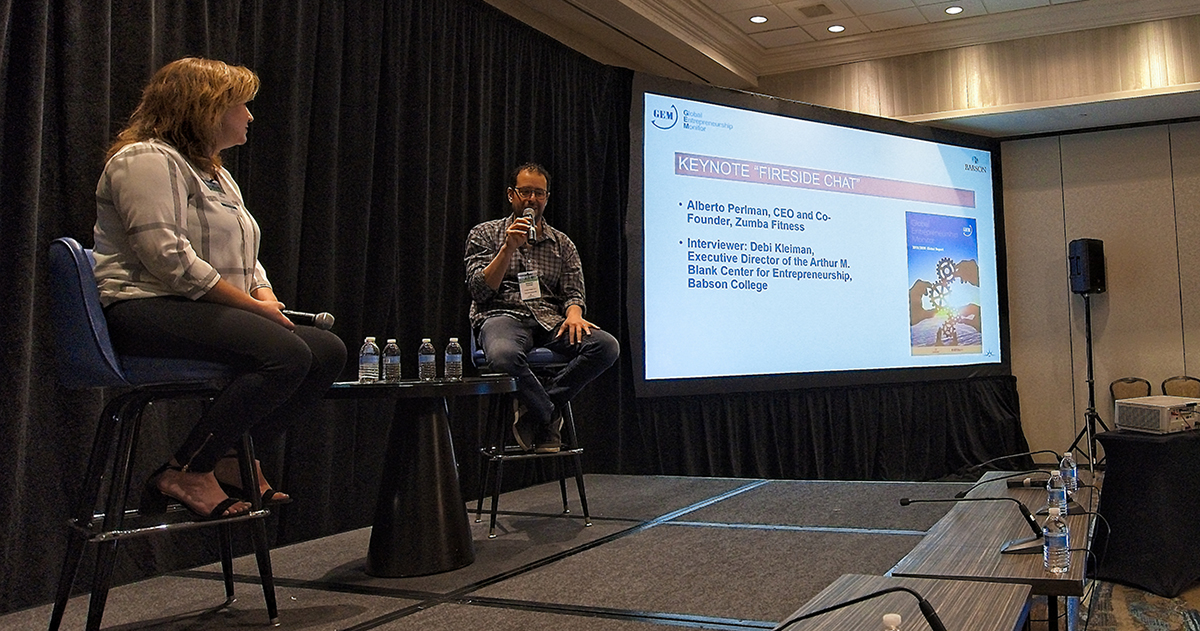Lessons from Zumba’s Disruptive Business Model

Fitness is an industry filled with disruptive business models.
Before the boom of boutiques or the wave of at-home smart gym options, a dance fitness craze swept the world.
Yes, we’re talking about Zumba®.
Created in the 1990s and trademarked in the early 2000s, Zumba Fitness has since reached 15 million people in 180 countries and has raised a combined $10 million for charitable causes. All by leaning in to a unique business model that they mostly discovered on the fly, says co-founder Alberto Perlman ’98.
Perlman shared his lessons from leading Zumba with entrepreneurship scholars at the Global Entrepreneurship Monitor (GEM) Annual Meeting and Report Launch in Miami in March.
Listen to Your Brand’s Ambassadors
Zumba began with a more traditional business model. A studio. DVDs. The early years, Perlman said, were filled with experimentation to find what worked.
“We constantly looked at different business models,” said Perlman. “We never stopped.”
It clicked, he said, when they uncovered the passion of their instructors. “We saw the most momentum in our Zumba nation of instructors. It’s like the brand was telling us where to go.”
They landed on an instructor-centric model. They pay for certification. Once certified, they can teach class anywhere. “We didn’t want to interfere with their ability to go out and change lives, so we didn’t want to limit them to only work in Zumba studios. We wanted to be like water, able to flow anywhere.”
Today, Perlman regularly listens to their suggestions. Instructors visit the office regularly for tours, and he makes a point to say hello. “I usually stop everything I’m doing, no matter what meeting I’m having, and talk to them. In those five or 10 minutes, I usually get one or two ideas to bring back and work on.”
The lesson? “Build your business around the people who are the most passionate about it.”
Find Your Niche Then Ride the Wave
Disruptive business models are unique. Perlman’s advice: Don’t fall for the trap of replicating another company.
“The stakes are high,” he said. “We learned it’s not just about the product being unique. The deliver method has to be unique, too.”
Once you find that model, he said, it’s all about spotting, and leaning into, opportunities.
“Be in a position to see a wave coming and ride it. Sometimes waves don’t come. There’s a lot of luck and timing involved. But, if you can recognize the wave, ride it.”
Stay the Course
“When you’re building something, it’s hard to understand what’s going to happen 24 months from now,” he advised. “There is no way to have visibility. Keep trying, creating, and testing.”
Don’t be afraid to problem solve, either.
An example from Zumba: battling DVD piracy. It was rampant in Mexico in 2007. So, Perlman and the team ran with it. “We put advertising inside the DVDs for people to take a class or become an instructor. So, the pirated DVDs became advertising,” he said. “We took something negative and turned it into a positive. There are so many examples of that along the way.”



